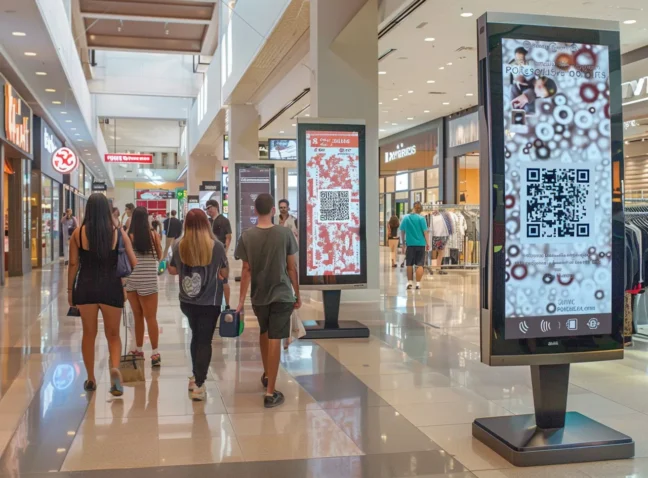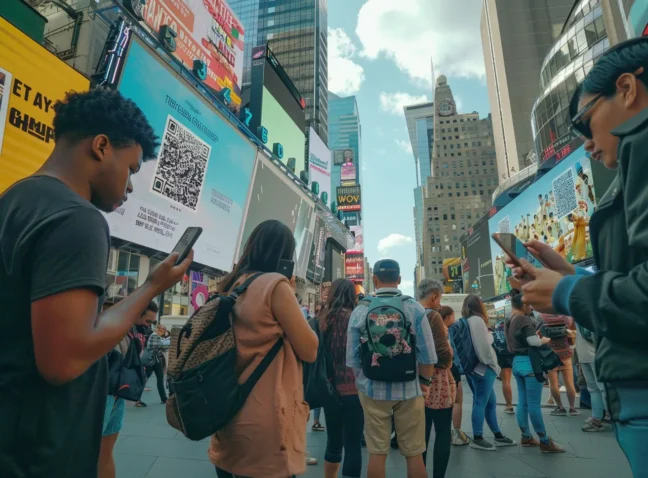In the bustling digital age, where time is as precious as gold, the quest for more efficient, user-friendly registration methods has led us to the doorstep of QR codes—a tool that is transforming sign-up processes worldwide. With just a simple scan, individuals can complete registrations in mere seconds, bypassing the tedious task of filling out lengthy forms. This technology not only caters to the tech-savvy but is also accessible to beginners, making it a universal solution for various events, services, and platforms. Imagine a world where getting started with your favorite activities is just a scan away. Curious to see how this can be a reality for you? Keep reading to discover how QR codes can simplify your registration processes and open doors to a world of convenience.
Why QR Codes Reign Supreme for Registration
QR codes streamline event registration, offering efficiency and improved user experience. This digital solution meets the demand for convenience, allowing quick access with a simple scan. By eliminating manual input, QR codes reduce errors and friction, broadening accessibility to a wider audience, thus enhancing registration efficiency.
Efficiency and Ease: QR Codes for Seamless Registration
The versatility of QR codes extends far beyond event sign-ups. From scheduling healthcare appointments to arranging real estate viewings and managing fitness club trials, QR codes offer a universal solution for facilitating user engagement across diverse industries. Businesses appreciate their simplicity and adaptability, enabling them to customize registration experiences to suit specific events or requirements seamlessly.
Additionally, QR codes streamline the transition from physical to digital realms, proving invaluable in our interconnected world. Statistical data underscores their effectiveness: 60% of event attendees prefer QR code registration for its convenience and efficiency, with usage surging by 40% in the past year alone. This trend is expected to persist, with QR code adoption projected to increase by 30% annually over the next five years, contributing to smoother event check-ins and reduced errors in attendee information. (Eventbrite 2023, Forbes 2023, TechCrunch 2023, LinkedIn 2023, CNBC 2023).
Cons of QR Codes for Registration: Risks
In the digital age, QR codes have emerged as a pivotal tool in simplifying the enrollment process across various sectors. By offering a quick and easy way to access websites, forms, and information with just a scan, they have transformed how organizations and individuals interact with technology. However, as with any technological advancement, it’s important to recognize and address the limitations and challenges that accompany their use. Ensuring a balanced approach that considers accessibility, security, and connectivity is essential for leveraging QR codes effectively. Here are some key considerations for optimizing QR code use in enrollment processes:
- Accessibility and the Digital Divide: Not everyone has access to a smartphone or the necessary digital literacy to use QR codes. To mitigate this, organizations can provide clear instructions and support, as well as alternative enrollment methods to ensure no one is left behind.
- Security and Privacy Concerns: The potential for QR codes to lead users to malicious sites or compromise personal data is a real risk. Implementing strong encryption and secure data practices can protect users, building trust and ensuring a safe experience.
- Connectivity Challenges: In areas with unreliable internet access, QR codes may not work as intended. Offering offline solutions or alternative means of access can help bridge this gap, ensuring that everyone has the opportunity to engage, regardless of their internet situation.
- Diverse User Preferences: Relying solely on QR codes can alienate individuals who prefer traditional or alternative methods of enrollment. Providing multiple options caters to a wider audience, enhancing user satisfaction and engagement.
QR Codes for Enrollment: Overcoming Challenges and Maximizing Accessibility
Utilizing QR codes for enrollment processes presents an efficient avenue for managing registrations, offering a blend of convenience and speed. However, it’s pivotal to address and overcome inherent challenges to ensure that this digital approach is accessible and secure for every user. By proactively identifying these issues and implementing strategies to mitigate them, organizations can create a more inclusive and reliable registration experience. Here are some of the key challenges to consider:
- Security Vulnerabilities: QR codes, while convenient, are not immune to security risks. They can be manipulated to redirect users to malicious sites, leading to potential data leaks and privacy concerns. This vulnerability underscores the importance of implementing robust security measures, such as encryption and secure data handling practices, to protect user information and maintain trust in the enrollment process.
- Scanning Difficulties: The effectiveness of QR code-based registration can be compromised by poor scanning conditions. Low lighting, physical damage to the QR code, or even high-speed environments can lead to failed scans, causing frustration and delays. To mitigate these issues, it’s essential to ensure that QR codes are displayed in well-lit areas, protected from damage, and designed with error correction capabilities to enhance readability under less-than-ideal conditions.
- Device Compatibility: Not all devices are created equal, and some may struggle with QR code recognition due to outdated cameras or incompatible software. This compatibility issue can hinder a smooth registration process, particularly for users with older technology. Addressing this challenge involves optimizing QR codes for a broad range of devices and providing alternative registration methods to accommodate everyone.
- User Engagement: Overreliance on QR codes for multiple services can lead to user fatigue, potentially decreasing engagement and adoption rates over time. To combat this, it’s crucial to balance the use of QR codes with other interaction methods and continuously seek user feedback to refine and improve the registration experience.
- Accessibility Concerns: Dependence on QR codes poses particular challenges for individuals with visual impairments or limited dexterity, making it difficult for them to engage with the registration process. Ensuring accessibility involves integrating voice commands, screen reader compatibility, and other assistive technologies to make QR code-based registrations more inclusive.
Discover QR Code Registration: Brands Leading the Way
QR codes have rapidly become a cornerstone of digital interaction in our daily lives, seamlessly bridging the gap between physical and digital worlds across a multitude of industries. This ingenious technology has been widely embraced by brands aiming to refine their customer engagement strategies, offering a testament to its flexibility and utility. In settings ranging from healthcare facilities, where the ease of booking appointments has seen substantial improvements, to the bustling arenas of real estate, where potential buyers and renters find a smoother path to exploring properties, QR codes are making their mark. The narrative is similar in the realms of hospitality and entertainment, where the simplicity of event registrations and attendance tracking via QR codes has transformed the guest experience.
Moreover, fitness clubs have found a novel way to welcome new members, using QR codes to provide hassle-free trial access, thereby enhancing the onboarding process for both the clients and the establishments themselves. The widespread adoption of this technology underscores a unified goal: to refine and improve the experience for users and businesses alike, demonstrating the expansive potential of QR codes in fostering user engagement and propelling business success:
- The overwhelming majority of event-goers, clocking in at 80%, have expressed a clear preference for QR code registration systems. This preference stems from the seamless and quick access it provides, eliminating the traditional hassles associated with event entry. This trend highlights not only the convenience offered by QR codes but also their effectiveness in meeting the evolving expectations of attendees.
- Starbucks, a global leader in the coffee industry, witnessed a 50% boost in customer sign-up rates after integrating QR code technology into their registration process. This significant increase is a testament to the efficiency and user-friendly nature of QR codes, making it easier for customers to connect with brands they love.
- In the aviation sector, a remarkable 70% of airlines have now incorporated QR codes into their check-in and boarding procedures. This shift towards contactless interactions not only streamlines the travel experience but also addresses growing demands for enhanced safety and convenience in the post-pandemic world.
- Adidas, a giant in the sportswear industry, reported a 40% increase in user engagement following the launch of their QR code-driven registration campaigns. This surge in engagement illustrates the effectiveness of QR codes in creating compelling marketing strategies that resonate with and captivate the target audience.
- Disney World’s implementation of QR codes has led to a 30% decrease in wait times, significantly improving the overall visitor experience. By simplifying entry processes and reducing bottlenecks, Disney World has set a benchmark for how technology can be used to enhance guest satisfaction in entertainment venues.
QR code generator for registration
Looking to simplify sign-ups? QR codes are your answer! Head to our QR code generator and start creating a smoother way for people to enroll. Forget the old struggles—welcome to the new era of easy engagement with just a quick scan. Let’s get started!





